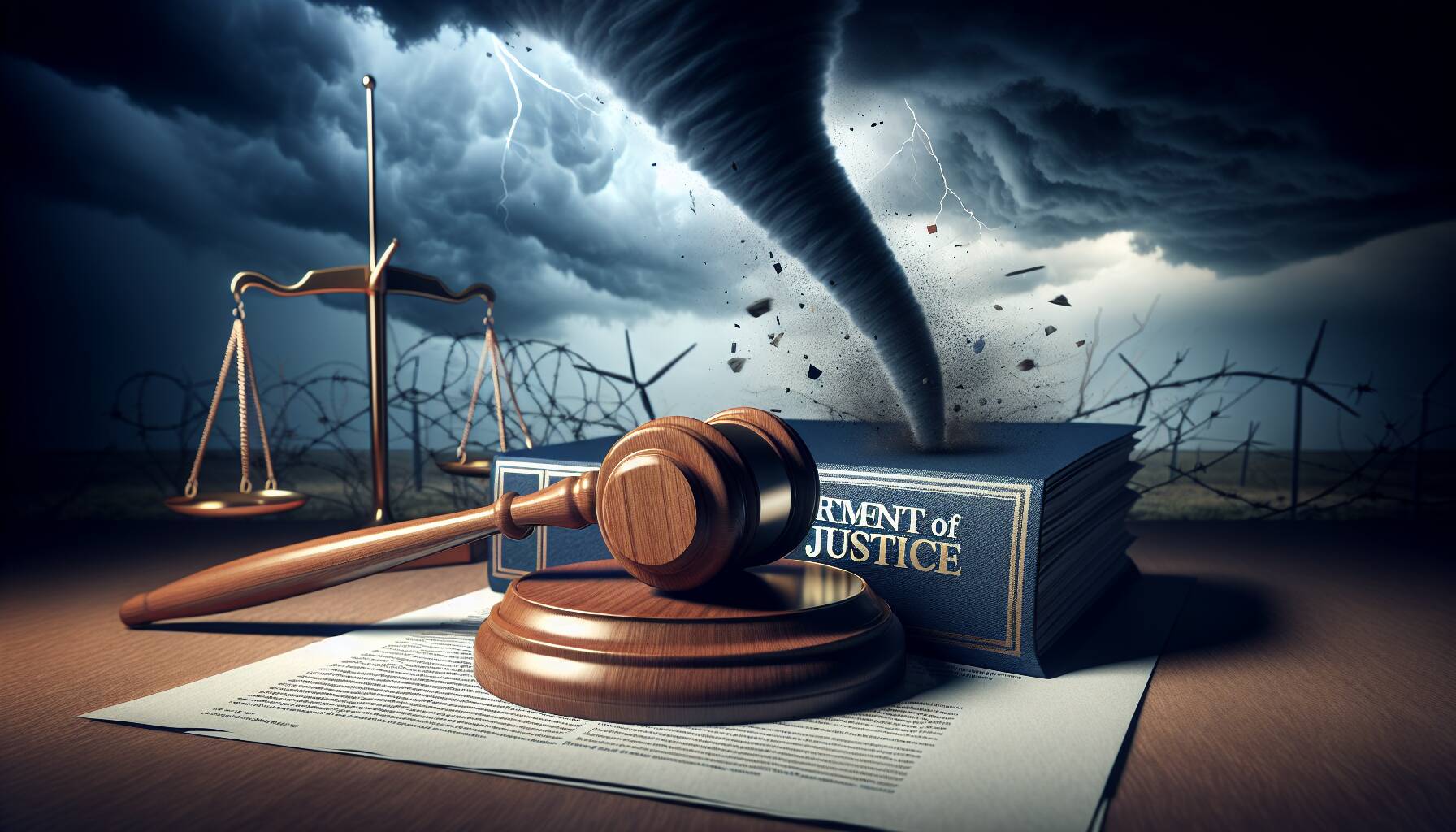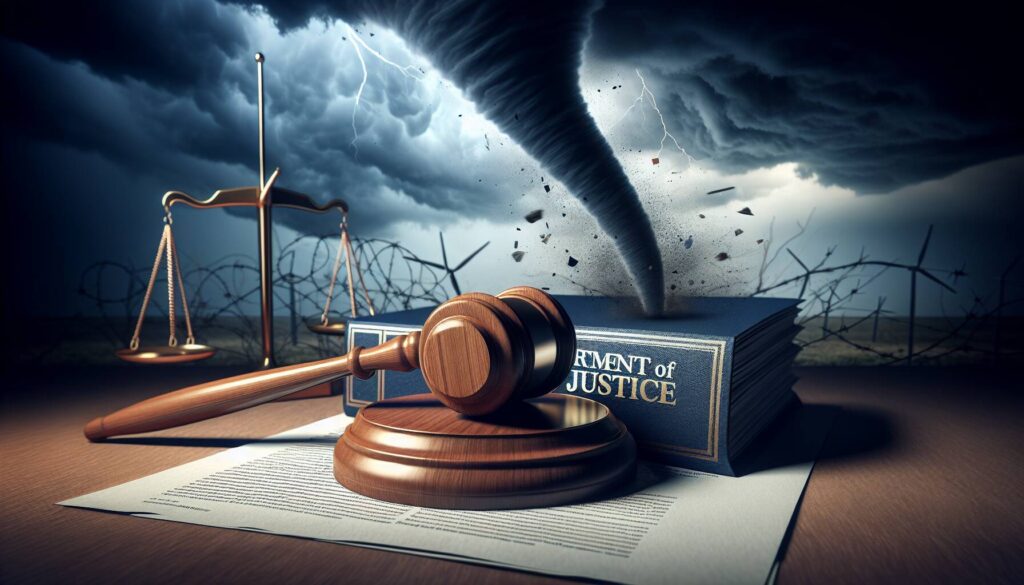In a developing story within the cryptocurrency legal landscape, the defense team for Roman Storm, implicated in the Tornado Cash case, is seeking critical information from the U.S. Department of Justice (DOJ). The request follows revelations in a related case involving different cryptocurrency developers. Storm’s attorneys argue that the DOJ may have withheld evidence crucial to his defense, which raises significant questions about the transparency and fairness of the legal proceedings.
“The government’s failure to produce those materials in the fall of 2023… constitutes a Brady violation that has materially prejudiced his defense,” the defense filing stated.
Specifically, the team points to exculpatory materials that have been in the government’s possession since August 2023. These documents pertain to whether a noncustodial cryptocurrency mixer, like Tornado Cash, qualifies as a ‘money transmitting business’ under relevant laws. As part of the defense, they contend that the noncustodial aspect inherently affects the legal characterization of such services, an argument they are set to reinforce in their motions.
The stakes are high, as this case underscores the broader challenges of regulatory interpretations within the crypto industry. The defense team highlights parallels with another legal dispute concerning the Samourai Wallet, where the DOJ allegedly delayed sharing insights from Financial Crimes Enforcement Network (FinCEN) officials that could bolster the defense’s case. In light of these developments, Storm’s attorneys have urged the presiding Judge Katherine Polk Failla to compel the DOJ to disclose any additional materials relevant to Storm’s defense.
This ongoing legal battle not only tests the boundaries of cryptocurrency regulation but also raises fundamental questions about fairness in prosecution and the obligations of regulatory bodies. As events unfold, both crypto enthusiasts and legal analysts will closely watch how this case may influence future regulations and enforcement in the rapidly evolving digital asset space.

Key Points from Roman Storm’s Defense Case
The ongoing legal case of Roman Storm, a developer associated with Tornado Cash, raises significant questions about the handling of evidence by the U.S. Department of Justice (DOJ) and its implications for the cryptocurrency sector. Here are the most important aspects:
- Concerns Over Withheld Evidence:
- Storm’s defense team suspects the DOJ may be withholding critical information that could aid in his defense.
- Recent legal developments in another crypto-related case have intensified these concerns.
- Exculpatory Materials Revealed:
- The defense claims the government has had exculpatory materials since August 2023.
- These materials pertain to whether a noncustodial crypto mixer qualifies as a ‘money transmitting business’ under federal law.
- Potential Brady Violation:
- The failure to share the exculpatory evidence before Storm’s indictment could be deemed a Brady violation.
- This withholding may have materially prejudiced Storm’s defense capabilities.
- Comparative Case Against Samourai Wallet:
- The defense highlights a case involving Samourai Wallet developers, where similar issues of withheld evidence were noted.
- Disclosures from FinCEN officials suggested that Samourai Wallet did not appear to be a money transmitter, relevant to Storm’s situation.
- Request for DOJ Review:
- The defense is asking Judge Katherine Polk Failla to compel the DOJ to review materials potentially beneficial to Storm’s case.
- They seek transparency regarding the timeline when prosecutors became aware of the pertinent documents.
“The core feature that lies at the heart of the conflicting interpretations of FinCEN guidance and the scope of Section 1960: the noncustodial nature of both protocols.”
This case underscores the complexities involved in cryptocurrency regulation and the potential implications for developers and users in the crypto space. Understanding these legal proceedings can inform individuals about the current legal landscape, how it affects cryptocurrency use, and the importance of transparency in regulatory practices.
Examining the Legal Landscape: Roman Storm’s Defense Strategy Against DOJ’s Conduct
In the ongoing saga involving Roman Storm, a prominent Tornado Cash developer, the legal maneuvers are raising eyebrows not just within the cryptocurrency community but across the legal spectrum as well. Defense attorneys are maneuvering to expose potential misconduct by the U.S. Department of Justice (DOJ), specifically suggesting that vital exculpatory evidence may have been withheld. This tense scenario echoes the recent case involving the developers of Samourai Wallet, another cryptocurrency mixing service. The implications of these developments are significant for both Storm and the broader landscape of cryptocurrency regulation.
Competitive Advantages for Storm’s Defense
Storm’s defense is leveraging the alleged inconsistencies in the DOJ’s handling of similar cases, particularly highlighting the failure to disclose information that could arguably exonerate him. The defense argues that such actions may constitute a Brady violation, a serious allegation that plays well to public sentiments about fair trial rights. By drawing parallels to the Samourai Wallet case, Storm’s team is positioning itself as a watchdog over prosecutorial conduct, which could resonate positively with supporters advocating for transparency in cryptocurrency regulation.
Potential Disadvantages of Defense Strategy
However, the challenge remains: proving that the DOJ’s disclosures were inadequate or misleading might not be straightforward. The DOJ counters that their disclosures were timely, which could limit the impact of Storm’s argument. Additionally, the government claims that the cases are only superficially similar, suggesting that this angle might not gain enough traction in court. If the court sides with the DOJ on this point, it could weaken the defense’s credibility and negatively impact Storm’s case.
Who Stands to Benefit and Who Might Face Challenges?
The outcome of this case could have far-reaching implications. Developers and startups in the cryptocurrency space may find themselves at a crossroads; a win for Storm might encourage more aggressive legal challenges against perceived overreach by regulatory authorities. Conversely, if the DOJ prevails, it could set a concerning precedent that may make developers wary of the legal ramifications associated with creating or operating cryptocurrency mixing technologies.
In essence, while the stakes are undeniably high for Roman Storm, the ramifications of this legal battle extend beyond the individual, echoing through the cryptocurrency industry and impacting how regulatory bodies interact with innovative technology. The less defined boundaries of existing laws create fertile ground for ongoing litigation, where the balance between regulation and innovation continues to be hotly contested.
















